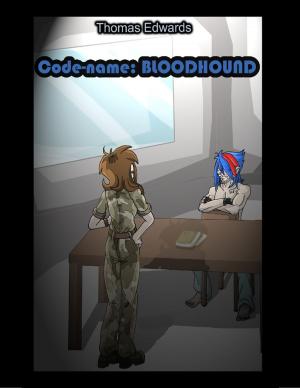The Strange Voyage and Adventures of Domingo Gonsales, to the World in the Moon
Comics & Graphic Novels, Fiction & Literature, Action Suspense, Science Fiction & Fantasy, Fantasy| Author: | Francis Godwin | ISBN: | 1230000263101 |
| Publisher: | John Lever, Bookseller, Stationer, and Printseller, at Little Moorgate | Publication: | August 25, 2014 |
| Imprint: | Language: | English |
| Author: | Francis Godwin |
| ISBN: | 1230000263101 |
| Publisher: | John Lever, Bookseller, Stationer, and Printseller, at Little Moorgate |
| Publication: | August 25, 2014 |
| Imprint: | |
| Language: | English |
Example in this ebook
Before I come to relate our extraordinary Voyage of Domingo Gonzales to the World in the Moon, I will make a Halt at St. Hellens, or Hellena, which is now possest by the Honourable East-India Company. It is called the Sea Inn, because the English and other Nations stop there as a Place for Watering and Refreshment in their long Voyages to India. It was formerly seized by the Dutch, but retaken May 6th, 1673, by Captain Munday, with a Squadron of English Ships, and three rich Dutch East India Ships made Prizes in the Harbour; since which the Company have fortified and secured it, against any future Invasion of Dutch, Portuguese, or Spaniards. It was called Santa Helena by the Portuguese, who discovered it on St. Hellen's Day, being April 2.
There is no Island in the World so far distant from the Continent or main Land as this. It is about sixteen Leagues in Compass, in the Ethiopic Sea; in 16 Degrees of South Latitude; about 1500 Miles from the Cape of Good Hope; 360 from Angola in Africa; and 510 from Brasile in America. It lies high out of the Water; and surrounded on the Sea-coasts with steep Rocks, having within many Cliffs, Mountains and Vallies, of which one is named Church-Valley, where behind a small Church they climb up to the Mountains. To the South is Apple-Dale, so called from the abundance of Oranges, Lemons, and Pomegranates enough to furnish five or six Ships. On the West-side of the Church, Ships have good Anchorage close under the Shore, to prevent the Winds which blow fiercely from the adjacent high Mountains.
The Air seems temperate and healthful, so that sick Men brought ashore there, in a short Time recover; yet the Heat in the Vallies is as intolerable as the Cold upon the Mountains; it commonly rains there five or six Times a Day, so that the Barrenness of the Hills is not occasioned for the want of Water, of which it hath two or three good Springs for furnishing Ships with fresh Water; the Ground of its own Accord brings forth wild Pease and Beans, also whole Woods of Orange, Lemon, and Pomegranate Trees, all the Year long, laden both with Blossoms and Fruit, good Figs; abundance of Ebony and Rose-trees, Parsly, Mustard-seed, Purslain, Sorrel, and the like; the Woods and Mountains are full of Goats, large Rams, and wild Swine, but difficult to be taken. When the Portuguese discovered it, they found neither four-footed Beasts nor Fruit-trees, but only fresh Water; they afterward planted Fruit-trees, which so increased since, that all the Vallies stand full of them; Partridges, Pigeons, Moor-hens, and Peacocks breed here numerously, whereof a good Marksman may soon provide a Dinner for his Friends. On the Cliff-Islands, on the South, are thousands of grey and black Mews, or Sea-Pies, and white and coloured Birds, some, with long, others with short Necks, who lay their Eggs on the Rocks, and suffer themselves to be taken with the Hand, gazing at their Surprizers, till they are knocked on the Head with Sticks.
From the Salt-water beating against the Cliffs, a Froth or Scum remains in some Places, which the Heat of the Sun so purifies, that it becomes white and good Salt; some of the Mountains yield. Bole Armoniac, and a fat Earth like Terra Lemnia. The Sea will answer the Pains of a patient Fisherman, who must use an Angle, not a Net, because of the foul Ground and beating of the Waves; the chief are Mackrel, Roach, Carp, but differing in Colour from those among us; Eels as big, as a Man's Arm, and well tasted Crabs, Lobsters, Oysters and Mussels as good as English.
To be continue in this ebook................................................................................................................
Example in this ebook
Before I come to relate our extraordinary Voyage of Domingo Gonzales to the World in the Moon, I will make a Halt at St. Hellens, or Hellena, which is now possest by the Honourable East-India Company. It is called the Sea Inn, because the English and other Nations stop there as a Place for Watering and Refreshment in their long Voyages to India. It was formerly seized by the Dutch, but retaken May 6th, 1673, by Captain Munday, with a Squadron of English Ships, and three rich Dutch East India Ships made Prizes in the Harbour; since which the Company have fortified and secured it, against any future Invasion of Dutch, Portuguese, or Spaniards. It was called Santa Helena by the Portuguese, who discovered it on St. Hellen's Day, being April 2.
There is no Island in the World so far distant from the Continent or main Land as this. It is about sixteen Leagues in Compass, in the Ethiopic Sea; in 16 Degrees of South Latitude; about 1500 Miles from the Cape of Good Hope; 360 from Angola in Africa; and 510 from Brasile in America. It lies high out of the Water; and surrounded on the Sea-coasts with steep Rocks, having within many Cliffs, Mountains and Vallies, of which one is named Church-Valley, where behind a small Church they climb up to the Mountains. To the South is Apple-Dale, so called from the abundance of Oranges, Lemons, and Pomegranates enough to furnish five or six Ships. On the West-side of the Church, Ships have good Anchorage close under the Shore, to prevent the Winds which blow fiercely from the adjacent high Mountains.
The Air seems temperate and healthful, so that sick Men brought ashore there, in a short Time recover; yet the Heat in the Vallies is as intolerable as the Cold upon the Mountains; it commonly rains there five or six Times a Day, so that the Barrenness of the Hills is not occasioned for the want of Water, of which it hath two or three good Springs for furnishing Ships with fresh Water; the Ground of its own Accord brings forth wild Pease and Beans, also whole Woods of Orange, Lemon, and Pomegranate Trees, all the Year long, laden both with Blossoms and Fruit, good Figs; abundance of Ebony and Rose-trees, Parsly, Mustard-seed, Purslain, Sorrel, and the like; the Woods and Mountains are full of Goats, large Rams, and wild Swine, but difficult to be taken. When the Portuguese discovered it, they found neither four-footed Beasts nor Fruit-trees, but only fresh Water; they afterward planted Fruit-trees, which so increased since, that all the Vallies stand full of them; Partridges, Pigeons, Moor-hens, and Peacocks breed here numerously, whereof a good Marksman may soon provide a Dinner for his Friends. On the Cliff-Islands, on the South, are thousands of grey and black Mews, or Sea-Pies, and white and coloured Birds, some, with long, others with short Necks, who lay their Eggs on the Rocks, and suffer themselves to be taken with the Hand, gazing at their Surprizers, till they are knocked on the Head with Sticks.
From the Salt-water beating against the Cliffs, a Froth or Scum remains in some Places, which the Heat of the Sun so purifies, that it becomes white and good Salt; some of the Mountains yield. Bole Armoniac, and a fat Earth like Terra Lemnia. The Sea will answer the Pains of a patient Fisherman, who must use an Angle, not a Net, because of the foul Ground and beating of the Waves; the chief are Mackrel, Roach, Carp, but differing in Colour from those among us; Eels as big, as a Man's Arm, and well tasted Crabs, Lobsters, Oysters and Mussels as good as English.
To be continue in this ebook................................................................................................................















